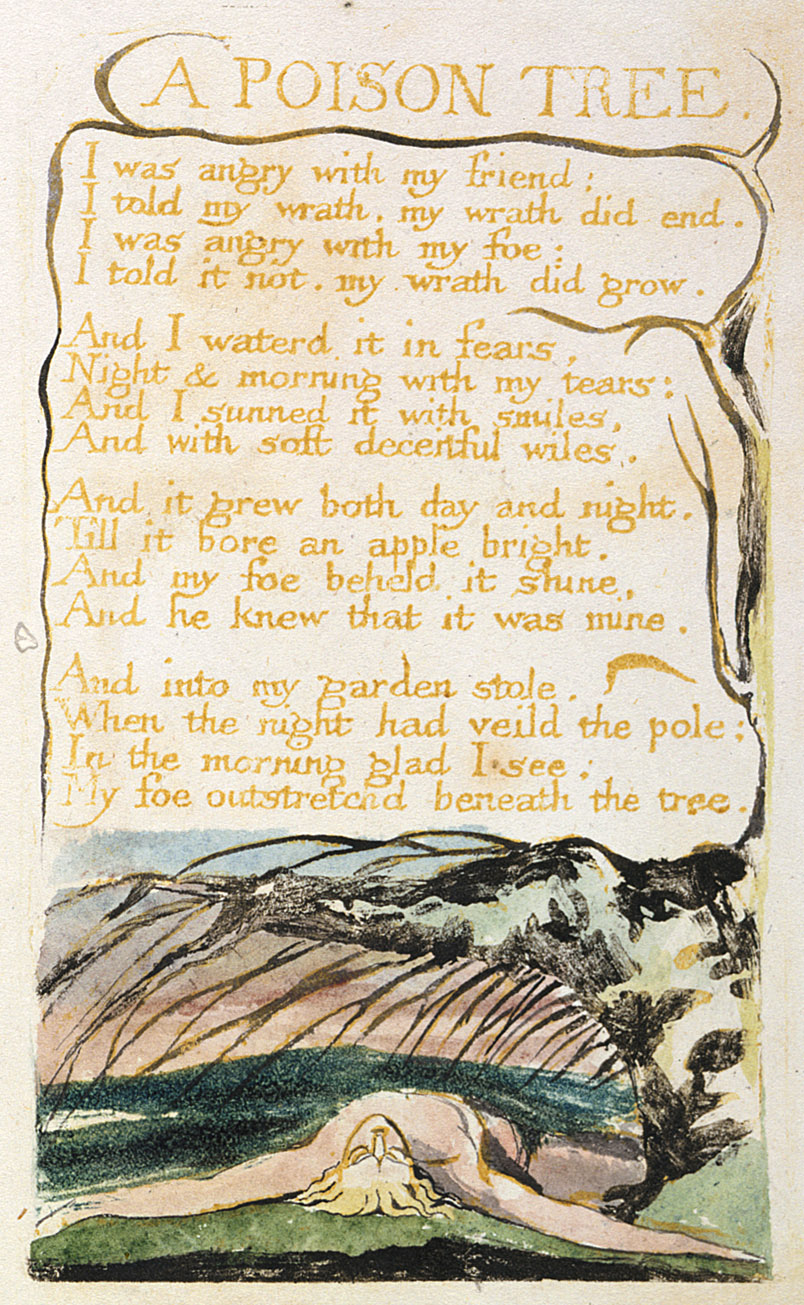William Blake (1757-1827)
William Blake has long been my favorite poet and non-contemporary artist. His style, somewhat crude but very striking and always consistent, seems jarringly out of place with his masterful Romantic brethren. Due to his likely mental illness (he heard angels), his work was often rife with bizarre pseudo-religious imagery and a violent fervor that gets the heart pounding even through text on paper.
That’s my kind of poetry! (Besides, I’ve always had a soft spot for eccentrics, being one myself.)
Moving on, Blake’s struggle with personal demons unfortunately caused his writing to be entirely hit or miss, which is one reason he’s not lauded as vocally as many other prolific poets and why he wasn’t taken seriously during his lifetime. But let me tell you, when he was on, he really nailed it.
Most people are typically exposed to Blake via his most famous poem Tyger, Tyger, or the image of the Red Dragon (used in both film adaptations of Thomas Harris’ novel of the same name, Michael Mann’s Manhunter and Brett Ratner’s Red Dragon). My favorite work is America: A Prophecy, which I was introduced to via Blade Runner, and I had the extreme pleasure to see a copy of in person once upon a time. But as that’s a rather long, complex (okay, and somewhat confusing if you’re not familiar with the characters and settings of the Blake-iverse) poem, I’m going to post my favorite short Blake piece instead (which to my joy pops up briefly in Westwood’s spot-on 1997 Blade Runner game):

The Poison Tree
I was angry with my friend:
I told my wrath, my wrath did end.
I was angry with my foe:
I told it not, my wrath did grow.
And I water’d it in fears,
Night & morning with my tears;
And I summoned it with smiles,
And with soft deceitful wiles.
And it grew both day and night,
Till it bore an apple bright;
And my foe beheld it shine,
And he knew that it was mine,
And into my garden stole
When the night had veil’d the pole:
In the morning glad I see
My foe outstretch’d beneath the tree.




